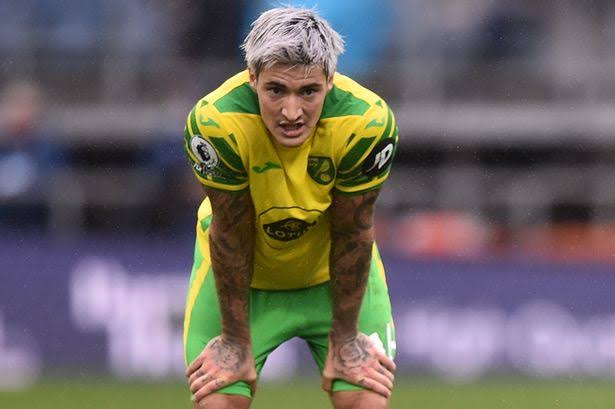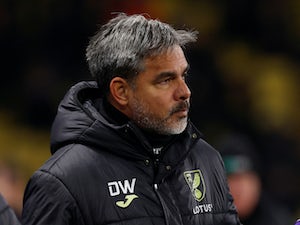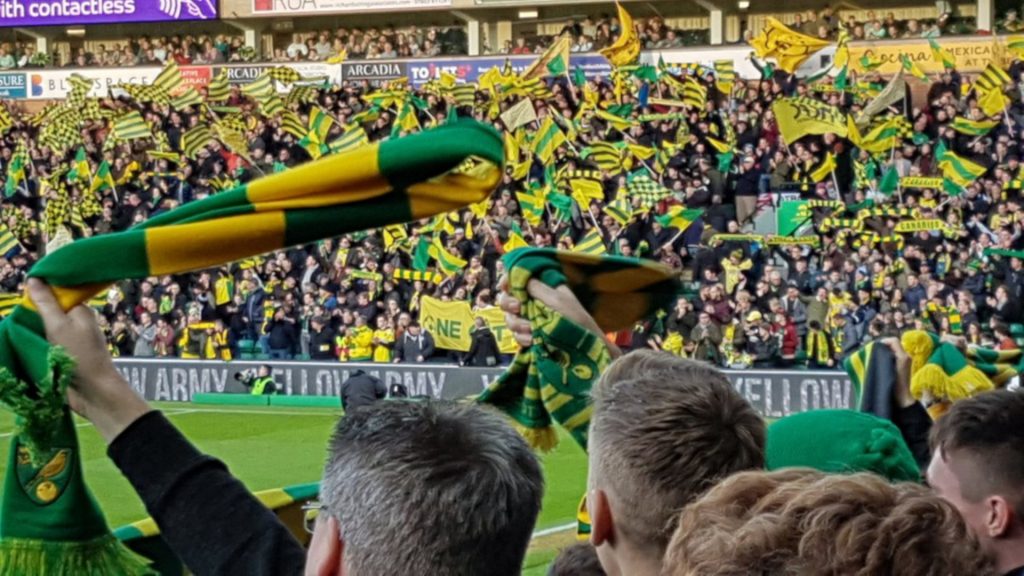AN SORRY: Reason why I left Norwich City Today…


At Carrow Road, the pervading sense is an unnerving one: that everything and nothing are changing all at once.
Mark Attanasio, the owner of Major League Baseball franchise Milwaukee Brewers, has taken a stake and is looking to increase it, but Delia Smith and Michael Wynn Jones are still there.
Sporting director Stuart Webber announced his departure in June and will finally leave the club after Saturday’s away trip to Cardiff.
David Wagner has lost eight of his last 10 games, but still hasn’t been sacked. All the while, the club tumbles lower.
It’s not that long since Norwich City were the good news story of English football.
They had the forward-thinking sporting director and the young German coach.
They retained their “little Norwich” tag as a badge of honour but won the Championship title with 94 points and then took the brave call not to squander the Premier League’s bestowed wealth.
When they were promoted again, this time with 97 points, Norwich had cracked it.
Nice try, weakling. Instead, Norwich are learning English football’s two relentless truths:
the financial non-elite are not insured against repeated mistakes and, if you are unable to intervene and arrest those mistakes, the floor is far lower than you trick yourself into believing at the time.
Two years after promotion, the club’s Supporters Trust are warning of widespread fan disaffection and apathy over the inertia that they believe has afflicted every element of the club.
Inevitably, those problems start at the top. Attanasio’s investment may well bring extra spending power; Norwich need it.
Theirs has been a self-funding model that relies upon continued success and thus places extra pressure upon it.
Within that model, you are only as good as the recruitment decisions you make in key positions.
For a while, Webber appeared to be the blue-eyed boy. There are still plenty within the club’s fanbase who would commend him for his work.
Webber oversaw the promotion campaigns and the investment in the club’s training ground and academy cannot be overlooked.
These can become statements of a bright future.
But a fine sporting director must establish, oversee and maintain an identity of how the club will operate, a successful recruitment model (spoiler: buying low and selling high) and a succession plan for the departure of players, managers and themselves.
As for the identity, it’s hard to say. Norwich effectively pivoted their entire strategy from one Premier League to the next, spending a little before spending a lot (although perhaps that was the strategy).
It might well have worked if the recruited players had worked out, but most were an abject failure.
Milot Rashica and Christos Tzolis were the two most expensive signings and barely had an impact.
Josh Sargent came next and is still there. Ozan Kabak was an expensive and dismal loanee. Norwich spent all that money and got one extra point.
Look at the sales of players for more than £5m during Webber’s six-year tenure – there are nine.
Five of those players were academy graduates (Andrew Omobamidele, Max Aarons, Josh Murphy, Jacob Murphy, Jamal Lewis), developed before his arrival.
Three were signed before Webber’s time (Alex Pritchard, James Maddison, Ben Godfrey).
Emi Buendia was the only player signed under Webber’s recruitment who was sold for significant profit (albeit it was a vast fee, Norwich’s record sale).
Then we come to managers, whose departure and appointment enables a club to commit to a philosophy that can guide the rest of their business.
Daniel Farke, who twice took Norwich up, was sacked after three months of his second Premier League season having just won his first game.
His replacement Dean Smith failed badly, a 29 per cent win ratio and a sacking two days after Christmas during last season.
Wagner, Webber’s man from Huddersfield Town, started brightly but has tailed off alarmingly since – 24 points from his last 26 league matches.
From Farke to Smith to Wagner also represents two lurches in playing style.











